Economics is a social science that studies the production, distribution, and consumption of goods and services.

Economic history is the study of history using methodological tools from economics or with a special attention to economic phenomena. Research is conducted using a combination of historical methods, statistical methods and the application of economic theory to historical situations and institutions. The field can encompass a wide variety of topics, including equality, finance, technology, labour, and business. It emphasizes historicizing the economy itself, analyzing it as a dynamic entity and attempting to provide insights into the way it is structured and conceived.
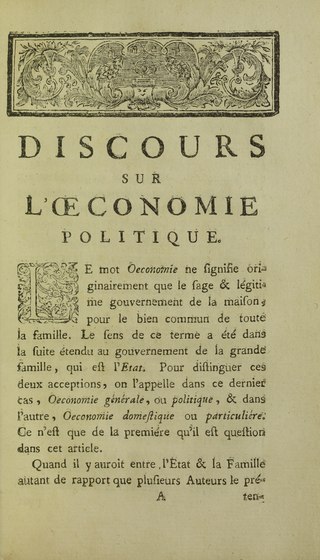
Political economy is a branch of political science and economics studying economic systems and their governance by political systems. Widely studied phenomena within the discipline are systems such as labour markets and financial markets, as well as phenomena such as growth, distribution, inequality, and trade, and how these are shaped by institutions, laws, and government policy. Originating in the 16th century, it is the precursor to the modern discipline of economics. Political economy in its modern form is considered an interdisciplinary field, drawing on theory from both political science and modern economics.

Kenneth Joseph Arrow was an American economist, mathematician, writer, and political theorist. Along with John Hicks, he won the Nobel Memorial Prize in Economic Sciences in 1972.
Wealth is the abundance of valuable financial assets or physical possessions which can be converted into a form that can be used for transactions. This includes the core meaning as held in the originating Old English word weal, which is from an Indo-European word stem. The modern concept of wealth is of significance in all areas of economics, and clearly so for growth economics and development economics, yet the meaning of wealth is context-dependent. A person possessing a substantial net worth is known as wealthy. Net worth is defined as the current value of one's assets less liabilities.
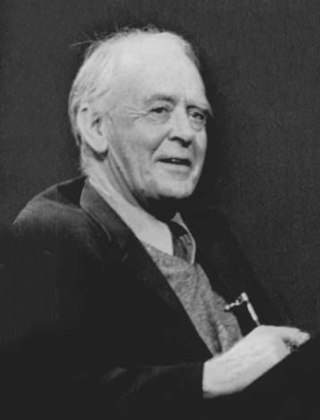
Sir John Richard Hicks was a British economist. He is considered one of the most important and influential economists of the twentieth century. The most familiar of his many contributions in the field of economics were his statement of consumer demand theory in microeconomics, and the IS–LM model (1937), which summarised a Keynesian view of macroeconomics. His book Value and Capital (1939) significantly extended general-equilibrium and value theory. The compensated demand function is named the Hicksian demand function in memory of him.

Industrialisation (UK) or industrialization (US) is the period of social and economic change that transforms a human group from an agrarian society into an industrial society. This involves an extensive reorganisation of an economy for the purpose of manufacturing. Industrialisation is associated with increase of polluting industries heavily dependent on fossil fuels. With the increasing focus on sustainable development and green industrial policy practices, industrialisation increasingly includes technological leapfrogging, with direct investment in more advanced, cleaner technologies.
Muhammad Shahid Alam is a Pakistani economist, academic, and social scientist. He is a professor of economics at Northeastern University. He is a member of the Advisory Board of the Institute for Policy Research & Development, London.
David Saul Landes was a professor of economics and of history at Harvard University. He is the author of Bankers and Pashas, Revolution in Time, The Unbound Prometheus, The Wealth and Poverty of Nations, and Dynasties. Such works have received both praise for detailed retelling of economic history, as well as scorn on charges of Eurocentrism, a charge he openly embraced, arguing that an explanation for an economic miracle that happened originally only in Europe must of necessity be a Eurocentric analysis.
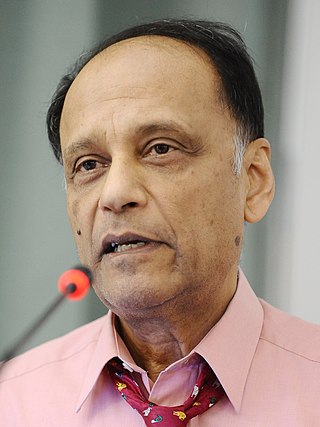
Sir Partha Sarathi Dasgupta is an Indian-British economist who is Frank Ramsey Professor Emeritus of Economics at the University of Cambridge, United Kingdom, and a fellow of St John's College, Cambridge.
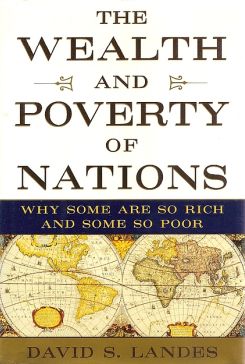
The Wealth and Poverty of Nations: Why Some are So Rich and Some So Poor is a 1998 book by historian and economist David Landes (1924–2013). He attempted to explain why some countries and regions experienced near miraculous periods of explosive growth while the rest of the world stagnated. The book compared the long-term economic histories of different regions, specifically Europe, United States, Japan, China, the Arab world, and Latin America. In addition to analyzing economic and cliometric figures, he credited intangible assets, such as culture and enterprise, to explain economic success or failure.
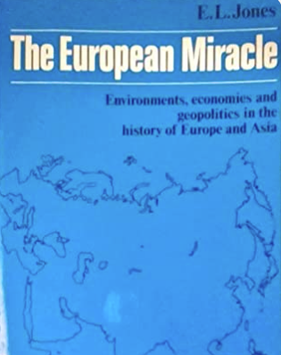
The European Miracle: Environments, Economies and Geopolitics in the History of Europe and Asia is a book written by Eric Jones in 1981 to refer to the sudden rise of Europe during the Late Middle Ages. Ahead of the Islamic and Chinese civilizations, Europe steadily rose since the early modern period to a complete domination of world trade and politics that remained unchallenged until the early 20th century.
Dr Kent Deng, FRHistS, is full professor in Economic History at the London School of Economics. He is a member of the Asian Research Centre and has been Secretary of the History and Economic Development Group UK since 2000.

Helen Dolly Hughes was an Australian economist. She was Professor Emerita at the Australian National University, Canberra, and Senior Fellow at the Centre for Independent Studies, Sydney. Hughes has been described as Australia's greatest female economist.

The post–World War II economic expansion, also known as the postwar economic boom or the Golden Age of Capitalism, was a broad period of worldwide economic expansion beginning with the aftermath of World War II and ending with the 1973–1975 recession. The United States, the Soviet Union and Western European and East Asian countries in particular experienced unusually high and sustained growth, together with full employment.
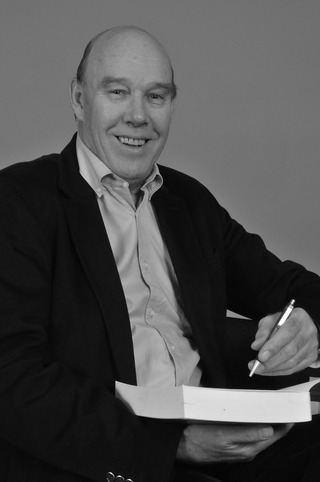
Anthony Philip Thirlwall was a British economist who was Professor of Applied Economics at the University of Kent. He made major contributions to regional economics; the analysis of unemployment and inflation; balance of payments theory, and to growth and development economics with particular reference to developing countries. He was the author of the bestselling textbook Economics of Development: Theory and Evidence now in its ninth edition. He was also the biographer and literary executor of the famous Cambridge economist Nicholas Kaldor. Perhaps his most notable contribution was to show that if long-run balance of payments equilibrium is a requirement for a country, its growth of national income can be approximated by the ratio of the growth of exports to the income elasticity of demand for imports.
Joseph Camilleri is an Australian citizen of Maltese descent. He is a social scientist and philosopher. In philosophy he mostly specialised and interested in international relations.
Garett Jones is an American economist and author. His research pertains to the fields of macroeconomics, monetary policy, IQ in relation to productivity, short-term business cycles, and economic development. He is an associate professor at George Mason University and the BB&T Professor for the Study of Capitalism at the Mercatus Center.
John Montagu Hobson, FBA is a political scientist, international relations scholar and academic. Since 2005, he has been Professor of Politics and International Relations at the University of Sheffield.
Oriental Despotism: A Comparative Study of Total Power is a book of political theory and comparative history by Karl August Wittfogel (1896–1988) published by Yale University Press in 1957. The book offers an explanation for the despotic governments in "Oriental" societies, where control of water was necessary for irrigation and flood-control. Managing these projects required large-scale bureaucracies, which dominated the economy, society, and religious life. This despotism differed from the Western experience, where power was distributed among contending groups. The book argues that this form of "hydraulic despotism" characterized ancient Egypt and Mesopotamia, Hellenistic Greece and imperial Rome, the Abbasid Caliphate, imperial China, the Moghul empire, and Incan Peru. Wittfogel further argues that 20th century Marxist-Leninist regimes, such as the Soviet Union and People's Republic of China, though they were not themselves hydraulic societies, did not break away from their historical condition and remained systems of "total power" and "total terror".










